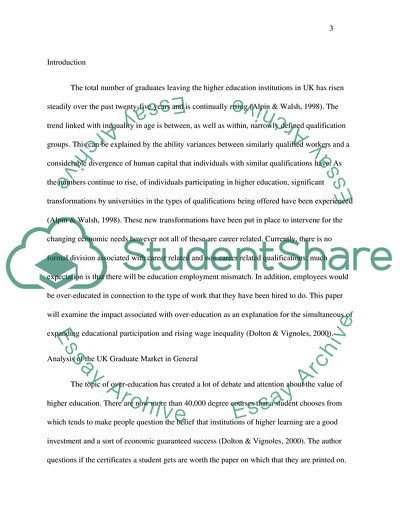Cite this document
(The Issue of Over-education in the Labor Market of the United Kingdom Term Paper Example | Topics and Well Written Essays - 2250 words, n.d.)
The Issue of Over-education in the Labor Market of the United Kingdom Term Paper Example | Topics and Well Written Essays - 2250 words. https://studentshare.org/social-science/1845017-over-education-in-the-graduate-labor-market
The Issue of Over-education in the Labor Market of the United Kingdom Term Paper Example | Topics and Well Written Essays - 2250 words. https://studentshare.org/social-science/1845017-over-education-in-the-graduate-labor-market
(The Issue of Over-Education in the Labor Market of the United Kingdom Term Paper Example | Topics and Well Written Essays - 2250 Words)
The Issue of Over-Education in the Labor Market of the United Kingdom Term Paper Example | Topics and Well Written Essays - 2250 Words. https://studentshare.org/social-science/1845017-over-education-in-the-graduate-labor-market.
The Issue of Over-Education in the Labor Market of the United Kingdom Term Paper Example | Topics and Well Written Essays - 2250 Words. https://studentshare.org/social-science/1845017-over-education-in-the-graduate-labor-market.
“The Issue of Over-Education in the Labor Market of the United Kingdom Term Paper Example | Topics and Well Written Essays - 2250 Words”. https://studentshare.org/social-science/1845017-over-education-in-the-graduate-labor-market.


